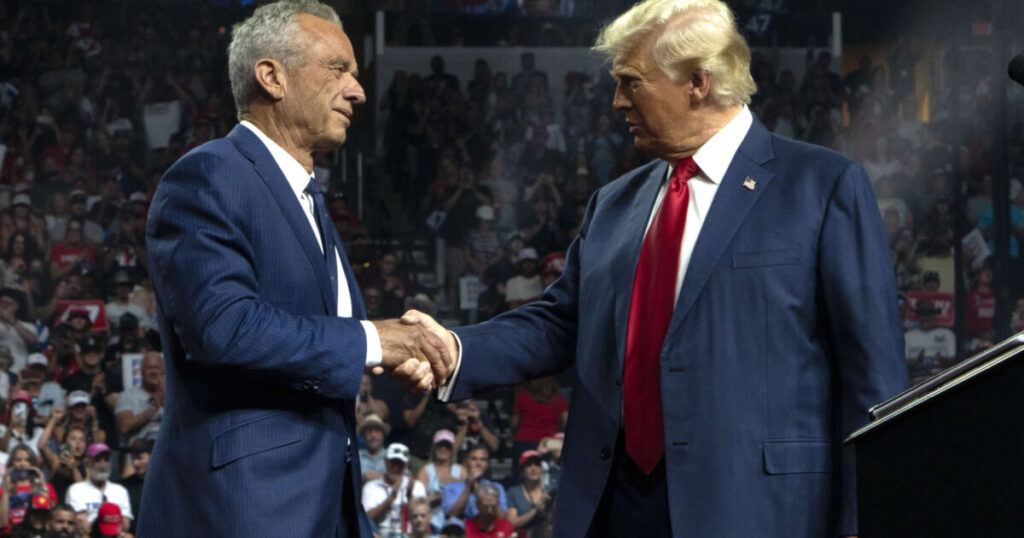In August 2024, Robert F. Kennedy Jr. endorsed Donald Trump for President, a significant political moment considering Kennedy’s standing as a vocal critic of the pharmaceutical industry. This endorsement was followed by a crucial meeting at Trump’s Mar-a-Lago estate, where Kennedy was introduced as Trump’s nominee for Secretary of Health and Human Services. High-profile executives from major pharmaceutical companies, including Pfizer and Eli Lilly, as well as representatives from the Pharmaceutical Research and Manufacturers of America (PhRMA), attended the gathering. This convergence of influential figures led to speculation regarding a potential reassessment of health partnerships and policies in the upcoming Trump administration, particularly in light of Trump’s previous collaboration with the private sector during the COVID-19 pandemic.
At the meeting, which lasted nearly three hours and included a pre-dinner reception, discussions likely focused on the complex relationships between government health agencies and the pharmaceutical industry. Kennedy has expressed deep concerns about the influence “Big Pharma” wields over public health policies, alleging that this has often compromised the integrity of regulatory agencies like the FDA and CDC. His skepticism extends to vaccine safety and other public health issues attributed to industrial chemicals in various consumer products. This fundamental tension between industry influence and public health is poised to shape Kennedy’s agenda if confirmed as Secretary of Health and Human Services.
Central to Kennedy’s role in the potential new administration is a threefold mandate outlined by Trump. Firstly, Kennedy aims to tackle the issue of corruption within government health agencies, focusing on conflicts of interest that may lead these entities to prioritize industry interests over public health. Identifying and rectifying such conflicts forms a core component of his mission to restore trust and transparency in public health governance. Secondly, he is tasked with rejuvenating a commitment to evidence-based science in healthcare regulation, reinforcing the rigorous standards that defined health agencies in the past.
Additionally, Kennedy’s mandate encompasses a broad public health initiative to combat what he labels an “epidemic” of chronic diseases affecting the nation’s children. He has expressed a desire to achieve measurable improvements in health outcomes within a two-year timeframe. This ambitious goal underscores not only his commitment to public health reform but also aligns with Trump’s vision of enhancing the health of Americans, a promising platform aimed at engendering trust among parents and families concerned about the rising incidence of chronic health issues.
Kennedy’s appointment signifies a noteworthy shift in the approach towards public health in the Trump administration, especially regarding the intersection of government regulation and pharmaceutical interests. His administration is poised to differ sharply from previous efforts, perhaps reversing the trend of close ties between regulatory agencies and the pharmaceutical industry. If successful, Kennedy could redefine the operational ethos of these health agencies and establish new protocols that prioritize public welfare over profit-driven healthcare practices.
Ultimately, the collaboration between Trump and Kennedy could signify a turning point in U.S. health policy, with implications that extend to the management of pandemics, vaccine development, and the overall regulatory environment for pharmaceuticals. Whether Kennedy’s vision for making America healthy again will bear fruit remains to be seen; however, it undoubtedly presents a bold agenda aimed at addressing deeply rooted concerns surrounding public health, transparency, and accountability in health governance.

